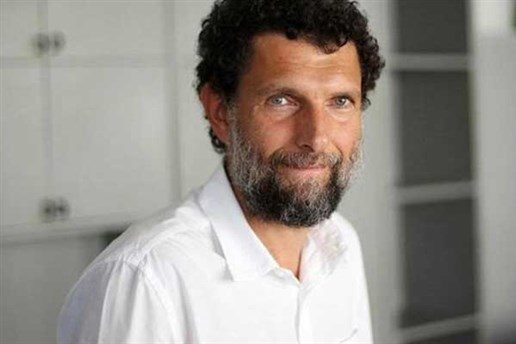
Sep 7, 2020 | News
Turkish authorities should immediately release human rights defender Osman Kavala, in compliance with the Council of Europe Committee of Ministers’ decision of 3 September 2020, the International Commission of Jurists (ICJ), Human Rights Watch and the Turkey Human Rights Litigation Support Project said today.
The decision followed a Committee of Ministers hearing to assess the execution of the judgment of the European Court of Human Rights in the case of Osman Kavala. The Committee, acting in its supervisory capacity for Court Judgments, ordered the Turkish authorities, “to ensure the applicant’s immediate release,” pointing to, “a strong presumption that his current detention is a continuation of the violations found by the Court.”
“After the finding by the European Court of Human Rights that Kavala’s detention is unlawful, the Committee of Ministers has affirmed that Turkey is continuing to violate his rights by keeping him in detention” said Roisin Pillay, director of the Europe and Central Asia Programme at the International Commission of Jurists. “European Court rulings are binding, and Osman Kavala should be released immediately.”
Despite the unlawful detention and an acquittal by the Turkish criminal court presiding over his trial, Osman Kavala has been kept behind bars under a newly issued charge of “espionage” since March 2020. His lawyers are currently challenging the lawfulness of the detention before Turkey’s Constitutional Court. However, the Committee of Ministers indicated in its decision that Turkey should not wait for a ruling of the Constitutional Court but should release Kavala immediately.
In June, the ICJ, Human Rights Watch and the Turkey Human Rights Litigation Support Project made a detailed submission to the Committee of Ministers of the Council of Europe, which oversees enforcement of European Court of Human Rights judgments. The submission argued that the sequence of events and repeated local court decisions to ensure Kavala’s detention subsequent to the European Court’s ruling in December 2019 demonstrated that Turkey was prolonging the violations found by the European Court.
The European Court judgment in Kavala v. Turkey (Application no. 28749/18) found violations of the following provisions of the European Convention on Human Rights: Article 5(1) (right to liberty and security), Article 5(4) (right to a speedy decision on the lawfulness of detention), and the rarely used Article 18 (limitation on use of restrictions on rights) taken together with Article 5(1). The Court required Turkey to release Kavala and said that any continuation of his detention would prolong the violations and breach the obligation to abide by the judgment in accordance with Article 46(1) of the Convention.
The judgment on Osman Kavala’s case is particularly significant because it is the first final ruling of the European Court of Human Rights against Turkey in which the Court determined that, in interfering with an individual’s rights, Turkey acted in bad faith and out of political motivations, violating Article 18 of the European Convention on Human Rights. The Court said that by detaining Kavala since November 2017 and prosecuting him, the Turkish authorities had “pursued an ulterior purpose, namely to silence him as human rights defender.”
Kavala has been held in detention since November 2017, initially on bogus allegations that he used the 2013 Istanbul Gezi Park protests as a pretext for an attempt to overthrow the government, and that he was involved in the July 15, 2016 attempted military coup. On February 18, 2020, Kavala and his eight co-defendants were acquitted on charges of “attempting to overthrow the government by force and violence” in the Gezi Park trial.
But Kavala was not released, and a court ordered his detention again immediately on one of the grounds for his initial detention on 1 November 2017, namely the charge of “attempting to overthrow the Constitution by force and violence” because of the ongoing July 15, 2016 coup attempt-related investigation against him. Turkey’s President Recep Tayyip Erdoğan had publicly criticized his acquittal just before he was detained again. Weeks later a court ordered his detention a second time on another charge (“espionage”) but under the same investigation file on the coup attempt and relying on the same evidence.
“The decision by the Council of Europe Committee of Ministers confirms our submission that political considerations are behind the court orders prolonging Osman Kavala’s detention , and that there has been a concerted official effort to prevent Kavala’s release,” said Emma Sinclair-Webb, Turkey director at Human Rights Watch.
“Instead of complying with the European Court’s judgment, Turkey has continued to violate Kavala’s human rights.”
The targeted harassment in Turkey of rights defenders is part of a wider practice of arbitrary detentions and abusive prosecutions of journalists, elected politicians, lawyers, and other perceived government critics. This practice has been well-documented in many reports by the Council of Europe, the European Union, and human rights organizations.
“The campaign of persecution against Osman Kavala and the failure to release him and drop all charges have perpetuated a chilling environment for all human rights defenders in Turkey,” said Ayşe Bingöl Demir, co-director of the Turkey Human Rights Litigation Support Project.
“Ending this blatantly unlawful detention, which has been ongoing for over 1000 days, will not only play a role in preventing further violations to Osman Kavala’s rights, it will also give a strong signal to the human rights defenders community that the oversight mechanisms in place to ensure Turkey’s compliance with its international human rights obligations can still be effective.”
Contact:
Róisín Pillay, Director of ICJ’s Europe and Central Asia Programme, t: +32-2-734-84-46 ; e: roisin.pillay(a)icj.orgMassimo Frigo, Senior Legal Adviser, ICJ’s Europe and Central Asia Programme, t: +41-79-749-99-49 ; e: massimo.frigo(a)icj.org ; Twitter: @maxfrigo
Türkiye: Osman Kavala Serbest Bırakılmalı
Yetkililer, Avrupa Konseyi’nin İnsan Hakları Savunucusunu Serbest Bırakma Kararına Uymalıdır
(Cenevre, 7 Eylül 2020) Uluslararası Hukukçular Komisyonu (ICJ), İnsan Hakları İzleme Örgütü ve Türkiye İnsan Hakları Davalarına Destek Projesi, yaptıkları açıklamada Türkiye makamlarının insan hakları savunucusu Osman Kavala’yı Avrupa Konseyi Bakanlar Komitesinin 3 Eylül 2020 tarihli kararına uygun olarak derhal serbest bırakması gerektiğini ifade etti.
Bu karar, Osman Kavala davasında Avrupa İnsan Hakları Mahkemesi’nin kararının uygulanmasını değerlendiren Bakanlar Komitesi oturumunu müteakiben alındı. Mahkeme kararlarının uygulanmasını denetleme yetkisi olan Komite, Türk makamlarına “başvuranın derhal serbest bırakılmasını sağlama” talimatı vererek “mevcut tutukluluğunun mahkeme tarafından tespit edilen ihlallerin devamı olduğuna dair güçlü bir karine bulunduğuna” işaret etti.
Uluslararası Hukukçular Komisyonu Avrupa ve Orta Asya Programı Direktörü Roisin Pillay,” Avrupa İnsan Hakları Mahkemesi’nin, Kavala’nın tutukluluğunun hukuka aykırı olduğunu tespit etmesinden sonra, Bakanlar Komitesi, Türkiye’nin Kavala’nın tutukluluğunu sürdürerek onun haklarını ihlal etmeye devam ettiğini doğruladı” dedi. Pillay, “Avrupa Mahkemesi kararları bağlayıcıdır ve Osman Kavala derhal serbest bırakılmalıdır” dedi.
Hukuka aykırı tutukluluğuna ve davasının görüldüğü Ceza Mahkemesinin verdiği beraat kararına rağmen, Osman Kavala yeni ileri sürülen bir “casusluk” suçlaması nedeniyle Mart 2020’den bu yana parmaklıklar ardında tutulmaya devam ediliyor. Kavala’nın avukatları, Türkiye’nin Anayasa Mahkemesi önünde tutukluluğun hukuksuz olduğuna ilişkin itirazlarda bulunuyorlar. Ancak Bakanlar Komitesi, kararında Türkiye’nin Anayasa Mahkemesinin vereceği bir kararı beklemeksizin Kavala’yı derhal serbest bırakması gerektiğini işaret ediyor.
Haziran ayında, ICJ, İnsan Hakları İzleme Örgütü ve Türkiye İnsan Hakları Davalarına Destek Projesi, Avrupa İnsan Hakları Mahkemesi kararlarının uygulanmasını denetleyen Avrupa Konseyi Bakanlar Komitesi’ne ayrıntılı bir bildirim sundu. Bildirim, Avrupa Mahkemesi’nin Aralık 2019’daki kararının ardından Kavala’nın alıkonmasını sağlamak için gelişen olaylar serisinin ve tekrarlanan yerel mahkeme kararlarının, Türkiye’nin Avrupa Mahkemesi tarafından tespit edilen ihlalleri devam ettirdiğini gösterdiğini savundu.
Avrupa Mahkemesi, Kavala/Türkiye kararında (Başvuru no. 28749/18), madde 5/1 (özgürlük ve güvenlik hakkı), madde 5/4 (alıkonmanın yasaya uygunluğuna ilişkin ivedi karar alma hakkı) ve nadiren kullanılan madde 18 (haklara getirilecek kısıtlamaların sınırlanması) ile birlikte madde 5/1’in ihlal edildiğine karar vermiştir. Mahkeme, Türkiye’nin Kavala’yı tahliye etmesini zorunlu kılmış, tutukluluğunun devam etmesinin ihlalleri devam ettireceğini ve Sözleşmenin 46(1) maddesi uyarınca AİHM kararlarına uyma yükümlülüğünü ihlal edeceğini belirtmiştir.
Osman Kavala kararı, Türkiye’nin kötü niyetle ve siyasi amaçlarla bir bireyin haklarına müdahale ettiğini ve Avrupa İnsan Hakları Sözleşmesi’nin 18. maddesini ihlal ettiğini tespit eden Türkiye aleyhindeki ilk nihai karar olduğundan özel bir önem taşımakta. AİHM, Osman Kavala’yı Kasım 2017’den bu yana alıkoyup yargılayan Türk makamlarının “başvuranın bir insan hakları savunucusu olarak susturulmasını sağlamak için örtülü bir amaç taşıdığını” tespit etmişti.
Kavala, Kasım 2017’den bu yana, 2013 İstanbul Gezi Parkı protestolarını, hükümeti devirme girişimi için kullandığı ve 15 Temmuz 2016 askeri darbe girişimine müdahil olduğu yönündeki asılsız iddialarla tutuklu. 18 Şubat 2020’de Kavala ve diğer sekiz sanık, Gezi Parkı davasında “cebir ve şiddet kullanarak hükümeti ortadan kaldırmaya teşebbüs” suçlamasından beraat etmiştir.
Ancak Kavala cezaevinden tahliye edilmemiş ve bir hakim kararıyla 2016 darbesiyle ilgili devam eden bir soruşturmayla ilişkili olarak “anayasal düzeni cebir ve şiddet kullanarak ortadan kaldırmaya teşebbüs” suçlamasıyla tekrar tutuklanmıştır. Tekrar tutuklanmasından kısa bir süre önce Cumhurbaşkanı Recep Tayyip Erdoğan halka açık şekilde Kavala’nın beraatini eleştirmiştir. Kavala haftalar sonra, yine bu delillere ve soruşturma dosyasına dayanan bir başka suçlama ile (casusluk) bir kez daha tutuklanmıştır.
İnsan Hakları İzleme Örgütü Türkiye Direktörü Emma Sinclair-Webb,” Avrupa Konseyi Bakanlar Komitesi’nin kararı bildirimimizi doğrulamakta, Osman Kavala’nın tutukluluk halini uzatan mahkeme kararlarının arkasında siyasi değerlendirmelerin olduğunu ve Kavala’nın serbest bırakılmasını önlemek için ortak bir resmi çabanın bulunduğunu ortaya koymaktadır” dedi.
Sinclair-Webb, “Avrupa Mahkemesi’nin kararına uymak yerine, Türkiye, Kavala’nın insan haklarını ihlal etmeye devam etmiştir” dedi.
Türkiye’de insan hakları savunucularına yönelik baskı, daha genel olarak gazetecilere, seçilmiş siyasetçilere, hukukçulara, hükümeti eleştirdiği düşünülenlere yönelik keyfi alıkoymalar ve yargısal tacizin bir parçasıdır. Bu uygulama Avrupa Konseyi, Avrupa Birliği ve insan hakları örgütlerine ait birçok raporla belgelendirilmiştir.
Türkiye İnsan Hakları Davalarına Destek Projesi Eş Direktörü Ayşe Bingöl Demir “Kavala’ya karşı yürütülen yıldırma kampanyası, onun tahliye edilmemesi ve hakkındaki suçlamaların düşürülmemesi, Türkiye’deki tüm insan hakları savunucuları için baskı ortamının sürmesine sebep olmuştur” dedi.
“1000 gün boyunca devam eden açıkça hukuka aykırı olan tutukluluğun sona ermesi, yalnız Osman Kavala’nın haklarının daha fazla ihlal edilmesini önlemek konusunda değil, aynı zamanda insan hakları savunucuları topluluğuna Türkiye’nin uluslararası insan hakları yükümlülüklerine uyumunu denetleyen mevcut gözetim mekanizmalarının hala etkili olabileceği yönünde güçlü bir sinyal verecektir.”
İnsan Hakları İzleme Örgütü’nün Türkiye ile ilgili diğer raporları için tıklayınız:
https://www.hrw.org/europe/central-asia/turkey
Daha fazla bilgi için :
İstanbul’da, Emma Sinclair-Webb (İngilizce, Türkçe): +90-538-972-4486 (Whatsapp); ya da sinclae@hrw.org. Twitter: @esinclairwebb
Cenevre’de, Massimo Frigo (İngilizce, Fransızca, İspanyolca ve İtalyanca): +41-79-749-99-49; ya da massimo.frigo@icj.org. Twitter: @maxfrigo
Brüksel’de, Róisín Pillay (İngilizce, Fransızca): +32-2-734-84-46 (cep telefonu); ya da roisin.pillay@icj.org
New York’ta, Aisling Reidy (İngilizce) +1-917-378-3178 (cep telefonu); ya da reidya@hrw.org
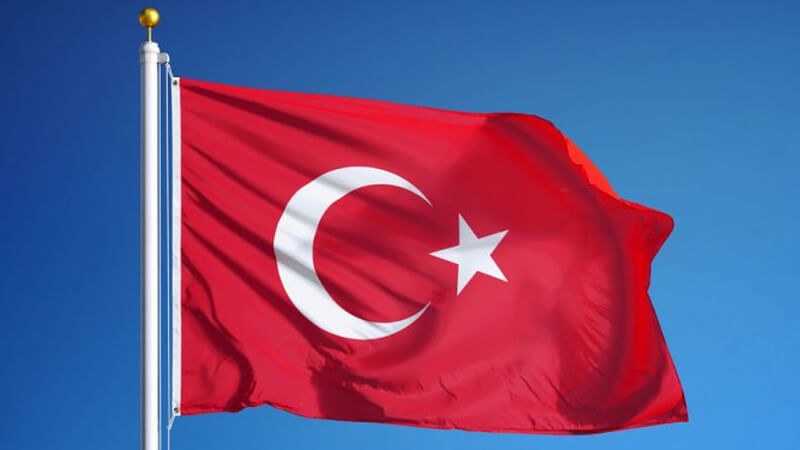
Jul 10, 2020 | Events, News
Today, the ICJ and the Human Rights Joint Platform (IHOP) are hosting an online conference to take stock of the current situation of access to justice and the rule of law in Turkey and discuss compliance with international standards and the Turkish Constitution.
The online conference features international and European experts and will address the shortcomings in accessing justice in the country both in terms of the capacity of the justice system to ensure the respect and protection of human rights and of the independence and effectiveness of the justice system itself.
The conference will take stock of the state of access to justice in Turkey after four years of extraordinary and worrisome events for the Rule of Law and human rights in the country. During this period, Turkey has experienced a severe deterioration in the rule of law. The state of emergency, in force between 2016 and 2018, has led to the cleansing of the judiciary and restricted the capacity of lawyers and civil society to act, and increasingly dramatically the arrests and trials of some of their members under spurious charges of terrorism, offences against the State, insult to the nation or its President, and hate speech crimes.
Many of the measures undertaken under the state of emergency included mass dismissal of public servants, judges and prosecutors without ensuring due process guarantees and the degradation of the justice system, depriving the judiciary of essential guarantees to ensure its independence from the political authorities.
The conference will address how these developments impacted the capacity of people in Turkey, and in particular those belonging to marginalised groups, to access justice for their human rights, and what should be done to ensure that such access exists and is effective.
As a result of the conference, a draft statement on the state of access to justice in Turkey will be issued to provide Turkish authorities with recommendations on how to ensure effective and independent access to justice for human rights protection.
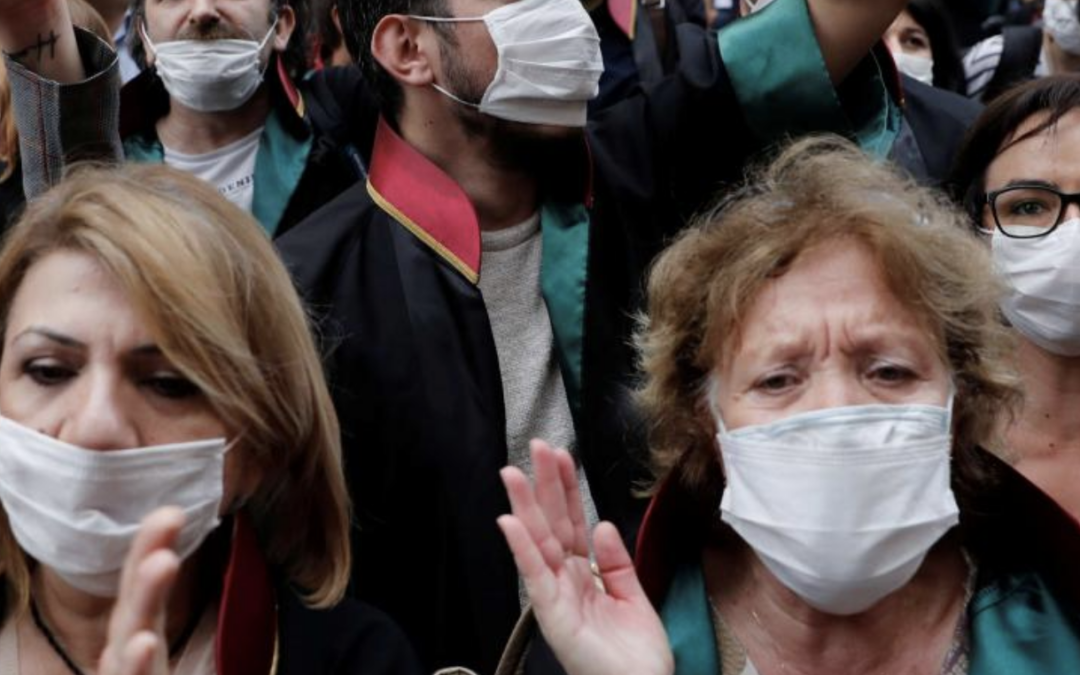
Jul 8, 2020 | News
Draft law reduces leading bar associations’ authority, leads to creation of rival groups, the ICJ and Human Rights Watch said today. The Turkish government’s plan to allow for multiple bar associations appears calculated to divide the legal profession along political lines and diminish the biggest bar associations’ role as human rights watchdogs, they added.
The current bar associations have not been consulted, and 78 bars out of 80 signed a statement opposing the plan.
The ICJ and Human Rights Watch have published a question and answer document explaining the draft law, scheduled for a vote in parliament in the coming days. The document outlines the government-led effort to reduce the influence of leading bar associations, reflecting the executive’s growing dissatisfaction with the bar associations’ public reporting on Turkey’s crisis for human rights and the rule of law.
“Turkey’s prominent bar associations play a key role in defending fair trial rights and scrutinizing human rights at a time when flagrant violation of rights is the norm in Turkey,” said Hugh Williamson, Europe and Central Asia director at Human Rights Watch.
“The government move to create multiple bars and dramatically cut leading bars’ representation at the national level is a clear divide-and-rule tactic to diminish the bar associations’ authority and watchdog role,” he added.
The proposed amendments provide that in provinces with over 5,000 lawyers, a group of at least 2,000 lawyers can establish alternative bar associations.
In big cities such as Istanbul, Ankara, and Izmir, several bar associations could be established. The amendments would also greatly reduce the representation of the largest bar associations at the national level within the Union of Turkish Bars, the Ankara-based umbrella body with significant financial resources it controls and distributes to provincial bars.
The fact that the vast majority of elected legal profession representatives oppose the move and that the likely impact will be to greatly diminish the authority of leading provincial bars that have been critical of certain government initiatives demonstrates that the aim of the proposed change is to shield the government from justified criticism, the ICJ and Human Rights Watch said.
Drastically cutting the number of delegates from large bar associations representing thousands of lawyers to the national Union of Turkish Bar Associations would reduce the influence of the large bar associations in electing the national group’s president and participating meaningfully in other decision-making functions.
A provincial bar association with fewer than 100 lawyers, such as Ardahan in northeastern Turkey, for example, would be represented by 4 delegates, compared with 3 at present.
But a bar association such as Izmir in western Turkey, with over 9,500 lawyers, which sends 35 delegates, would be entitled to only 5. Istanbul, Ankara, and Izmir Bar, which represent 55 percent of the lawyers in Turkey, would be entitled to only 7 percent of all delegates within the national union.
The atmosphere of conflict in which the draft law has been introduced, its timing, and the lack of consultation with the bar associations themselves provides credible grounds for great concern and skepticism over the government’s motives, the groups said.
Over the past year, Turkey’s presidency and government have made public statements strongly criticizing leading bar associations in response to the bars’ legitimate expression of concerns about Turkey’s rule of law crisis and executive interference in the justice system.
The government has reacted strongly against the bars’ scrutiny of its failure to uphold human rights obligations through bar association publication of reports on torture, enforced disappearances, and other rights abuses ignored by the authorities.
For these reasons, the government’s proposed amendments are clearly designed to achieve a political purpose unrelated to an effort to advance or strengthen standards in the legal profession, the ICJ and Human Rights Watch said.
The government’s move is politically divisive and will contribute to undermining the appearance of independence and impartiality in the justice system.
“The government should immediately withdraw the current proposed amendment and embark on a process of full consultation with bar associations,” said Róisín Pillay, Director of ICJ’s Europe and Central Asia Programme.
“The government’s plan as it stands will only deepen mistrust in Turkey’s justice system as lacking independence by dividing the legal profession along political lines. This could have disastrous long-term consequences for upholding the role and function of lawyers and for fair trial rights.”
Contact:
Róisín Pillay, Director of ICJ’s Europe and Central Asia Programme, t: +32-2-734-84-46 ; e: roisin.pillay(a)icj.org
Massimo Frigo, Senior Legal Adviser, ICJ’s Europe and Central Asia Programme, t: +41-79-749-99-49 ; e: massimo.frigo(a)icj.org ; Twitter: @maxfrigo
Download
Turkey-Q and A on the bar associations-Advocacy-2020-ENG (Q & A, in PDF)
Turkey-Q and A on the bar associations-News-Press releases-2020-TUR (Story in Turkish, PDF)
Turkey-Q and A on the bar associations-Advocacy-2020-TUR (Q & A in Turkish, PDF)
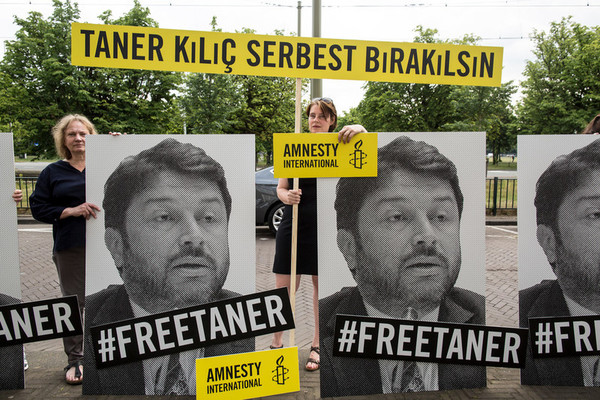
Jul 3, 2020 | News
The ICJ deplores today’s conviction of former Amnesty International Turkey President Taner Kılıç, and former Chair of Human Rights Agenda Association Günal Kurşun, former Director of Amnesty International Turkey İdil Eser and human rights defender Özlem Dalkıran by the Istanbul 35th Heavy Penal Court, on clearly unfounded terrorism charges.
“These convictions, which were clearly revealed to be baseless during the trial, are an alarming setback to efforts to restore the rule of law in Turkey,” said Massimo Frigo, Senior Legal Adviser for the ICJ Europe and Central Asia Programme.
“This prosecution and conviction constitute harassment of human rights defenders, in violation of a number of Turkey’s international legal obligations. The Turkish authorities should be protecting human rights and supporting the important work of human rights defenders, but instead we have witnessed a continuing pattern of arrests on human rights defenders in the country,” he added.
Taner Kılıç has been sentenced to six years and three months of imprisonment for “membership of a terrorist organization. Günal Kuşun, İdil Eser and Özlem Dalkıran were sentenced to one year and 13 months of imprisonment for “assisting a terrorist organisation”. This decision was taken by majority, with one dissenting opinion that called for their acquittal.
The Court acquitted the other defendants in the case: Nalan Erkem, İlknur Üstün, Ali Gharavi, Peter Steudtner, Veli Acu, Nejat Taştan et Şeyhmus Özbekli.
On 6 June 2017, Taner Kiliç, then President of Amnesty International Turkey was arrested on spurious terrorism charges. The other human rights defenders were arrested while attending a training in Istanbul on digital security and information management; also reported arrested were two trainers (reportedly a German and a Swedish national) and the owner of the training venue.
In Turkey, anti-terrorism offences are oftentimes abused and are applied in over-extensive terms to charge and prosecute human rights defenders and political dissenters, as it occurred in this case. The ICJ has highlighted this problem in several reports, including in its submission to the UN Human Rights Council on the universal periodic review of Turkey.
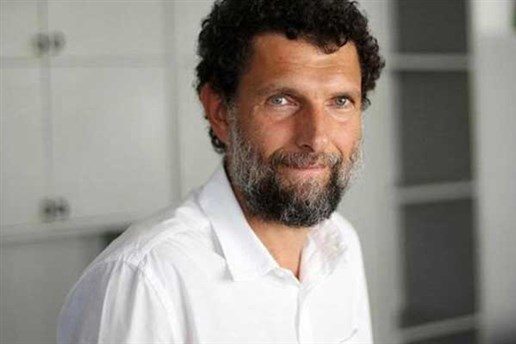
Jun 3, 2020 | Advocacy, Cases, Legal submissions
The Council of Europe Committee of Ministers should issue a decision at its 4 June 2020 meeting directing Turkey to release the human rights defender Osman Kavala and drop all charges against him, the ICJ, Human Rights Watch and the Turkish Human Rights Litigation Support Project said today.
The three groups have submitted a detailed submission to the Committee of Ministers of the Council of Europe, which oversees enforcement of European Court of Human Rights judgments. The groups outlined how Turkey continues to violate Kavala’s rights by flouting a landmark judgment, that became final on May 11 requiring his immediate release.
“The European Court ruled that Kavala’s detention is unlawful, and their binding judgment requires Turkey to release him immediately,” said Emma Sinclair-Webb, Turkey director at Human Rights Watch. “The Committee of Ministers, at its June 4 meeting, should press Turkey to comply and issue a clear message that no Council of Europe member state should be silencing human rights defenders.”
The judgment is particularly significant because it is the first final ruling against Turkey in which the court determined that in interfering with an individual’s rights Turkey acted in bad faith and out of political motivations, violating Article 18 of the European Convention on Human Rights. The court said that by detaining Kavala since November 2017 and prosecuting him, the Turkish authorities had “pursued an ulterior purpose, namely to silence him as human rights defender.”
The European Court judgment in Kavala v. Turkey (Application no. 28749/18) found violations of Article 5(1) (right to liberty and security), Article 5(4) (right to a speedy decision on the lawfulness of detention), and the rarely used Article 18 (limitation on use of restrictions on rights) taken together with Article 5(1). It required Turkey to release Kavala and said that any continuation of his detention would prolong the violations and breach the obligation to abide by the judgment in accordance with Article 46(1) of the European Convention on Human Rights..
A court ordered Kavala’s detention on November 1, 2017 on bogus allegations that he used the 2013 Istanbul Gezi Park protests as a pretext for an attempted coup, and that he was involved in the July 15, 2016 attempted military coup. On February 18, 2020, Kavala and his eight co-defendants were acquitted on charges of “attempting to overthrow the government by force and violence” in the Gezi Park trial .
But Kavala was not released, and a court detained him again immediately on the charge of “attempting to overthrow the constitution by force and violence” because of an ongoing 2016 coup-related investigation against him. Turkey’s President Recep Tayyip Erdoğan had publicly criticized his acquittal just before he was detained again. Weeks later a court ordered his detention a second time on another charge (“espionage”) but relying on the same evidence and investigation file.
“The sequence of court orders prolonging his detention and the lack of objective deliberation as to the lawfulness of any deprivation of liberty indicates that decisions have been guided by political considerations and there has been a concerted official effort to prevent Kavala’s release,” said Róisín Pillay, Director of ICJ’s Europe and Central Asia Programme . “Since the European Court’s judgment, Turkey has continued to violate Kavala’s human rights.”
The targeted harassment in Turkey of rights defenders is part of a wider trend of arbitrary detentions and abusive prosecutions of journalists, elected politicians, lawyers, and other perceived government critics. This trend has been well-documented in many reports by the Council of Europe, the European Union, and human rights organizations.
“The campaign of persecution against Osman Kavala and the failure to release him and drop all charges have perpetuated a chilling environment for all human rights defenders in Turkey,” said Ayşe Bingöl Demir, Co-Director of the Turkish Human Rights Litigation Support Project.
The three organizations made detailed recommendations to the Committee of Ministers, urging it to:
- Call on the government of Turkey to ensure the immediate release of Osman Kavala as required by the European Court’s judgment, stressing that the judgment clearly applies to his ongoing detention and persecution;
- Place the Kavala v. Turkey judgment under “enhanced procedures” and treat it as a leading case under Article 18 of the European Convention;
- Recognize that Kavala’s continuing detention violates Article 46 of the convention, concerning the binding nature of final judgments of the European Court, and that a failure to release Kavala may trigger an Article 46(4) procedure (infringement proceedings);
- Emphasize to the Government of Turkey that Kavala’s release is of added urgency in the context of the Covid-19 pandemic, which increases the risk to his health in detention;
- Ask the Government of Turkey to drop all charges under which Kavala has been investigated and detained to silence him, in conformity with the court’s findings that his rights have been violated and that his exercise of rights to freedom of expression, assembly and association was wrongfully used as evidence to incriminate him.
The groups also identified the general measures that Turkey needs to take to carry out the judgment to end politically motivated detention and prosecution of human rights defenders and other perceived government critics. These measures focus on Turkey’s structural rule of law problems. They include executive control over Turkey’s judiciary and prosecutorial authorities, and the evidence of a clear pattern of direct political interference in court decisions through frequent public speeches by Turkey’s president and proxies. A pattern of criminalizing the exercise of convention-protected rights defines many of the cases against human rights defenders and other perceived government critics.
Turkey’s international partners, including the European Union, should make it clear that the full implementation of the court’s judgment in Osman Kavala’s case will be key in measuring the credibility of any government pledges for reform, the three groups said. Any justice reform and any human rights action plan would remain hollow until the reasons that unjustly led Kavala to prison are addressed and fixed.
Kavala_v_Turkey-Execution-JointSubmissionR9_2-ICJHRWTLP-LegalSubmission-2020-eng (downaload the submission)
Kavala_v_Turkey-Execution-JointSubmissionR9_2-ICJHRWTLP-LegalSubmission-2020-tur (download the submission in Turkish)
Türkiye: AİHM Kararı Sonrası Hak Savunucusu Serbest Bırakılsın
Avrupa Konseyi Bakanları Osman Kavala’nın tahliyesinde ısrar etmelidir
(Strazburg, 3 Haziran 2020) – İnsan Hakları İzleme Örgütü, Uluslararası Hukukçular Komisyonu ve Türkiye İnsan Hakları Davalarına Destek Projesi, Avrupa Konseyi Bakanlar Komitesinin 4 Haziran 2020 tarihli toplantısında Türkiye’yi insan hakları savunucusu Osman Kavala’nın serbest bırakılmasına ve ona yönelik tüm suçlamaların düşürülmesine yöneltecek bir karar alması gerektiğini belirttiler.
Bu üç grup, Avrupa İnsan Hakları Mahkemesi kararlarının uygulanmasını denetleyen Avrupa Konseyi Bakanlar Komitesi’ne detaylı bir bildirim sundu. Gruplar, Türkiye’nin 11 Mayıs’ta kesinleşen ve Kavala’nın derhal tahliye edilmesini gerektiren bu önemli kararı göz ardı ederek, Kavala’nın haklarını ihlal etmeye devam ettiğini belirtti.
İnsan Hakları İzleme Örgütü Türkiye Direktörü Emma Sinclair-Webb, “Avrupa Mahkemesi, Kavala’nın alıkonmasının hukuka aykırı olduğuna ve bağlayıcı kararının gereği olarak Türkiye’nin Kavala’yı derhal tahliye etmesi gerektiğine karar verdi” dedi. Emma Sinclair-Webb, “Bakanlar Komitesi, 4 Haziran toplantısında, hiçbir Avrupa Konseyi üyesi devletin insan hakları savunucularını susturmaması gerektiğine dair net bir mesaj vererek buna uyması için Türkiye’ye baskı yapmalıdır” dedi.
Bu karar, Türkiye’nin kötü niyetle ve siyasi amaçlarla bir bireyin haklarına müdahale ettiğini ve Avrupa İnsan Hakları Sözleşmesi’nin 18. maddesini ihlal ettiğini tespit eden Türkiye aleyhindeki ilk nihai karar olduğundan özel bir önem taşımakta. AİHM, Osman Kavala’yı Kasım 2017’den bu yana alıkoyup yargılayan Türk makamlarının “başvuranın bir insan hakları savunucusu olarak susturulmasını sağlamak için örtülü bir amaç taşıdığını” tespit etmişti.
Avrupa Mahkemesi, Kavala/Türkiye kararında (Başvuru no. 28749/18), madde 5/1 (özgürlük ve güvenlik hakkı), madde 5/4 (alıkonmanın yasaya uygunluğuna ilişkin ivedi karar alma hakkı) ve nadiren kullanılan madde 18 (haklara getirilecek kısıtlamaların sınırlanması) ile birlikte madde 5/1’in ihlal edildiğine karar vermiştir. Karar, Türkiye’nin Kavala’yı tahliye etmesini zorunlu kılmış, tutukluluğunun devam etmesinin ihlalleri devam ettireceğini ve Sözleşmenin 46(1) maddesi uyarınca AİHM kararlarına uyma yükümlülüğünü ihlal edeceğini belirtmiştir.
Bir hakimlik 2013 İstanbul Gezi Parkı protestolarını darbe girişimine bahane olarak kullandığı ve 15 Temmuz 2016 askeri darbe girişimine müdahil olduğu iddiasıyla, Kavala’nın 1 Kasım 2017’de tutuklanmasına karar vermiştir. 18 Şubat 2020’de Kavala ve diğer sekiz sanık, Gezi Parkı davasında “cebir ve şiddet kullanarak hükümeti ortadan kaldırmaya teşebbüs” suçlamasından beraat etmiştir.
Ancak Kavala cezaevinden tahliye edilmemiş ve bir hâkim kararıyla 2016 darbesiyle ilgili devam eden bir soruşturmayla ilişkili olarak “anayasal düzeni cebir, şiddet kullanarak ortadan kaldırmaya teşebbüs” suçlamasıyla tekrar tutuklanmıştır. Tekrar tutuklanmasından kısa bir süre önce Cumhurbaşkanı Recep Tayyip Erdoğan halka açık şekilde Kavala’nın beraatini eleştirmiştir. Kavala haftalar sonra, aynı delillere ve soruşturma dosyasına dayanan bir başka suçlama ile (casusluk) bir kez daha tutuklanmıştır.
Uluslararası Hukukçular Komisyonu Avrupa ve Orta Asya Programı Direktörü, Róisín Pillay, “Tutukluluğun devamına ilişkin yargı kararlarının silsilesi ve tutuklamanın yasallığı konusunda nesnel bir değerlendirmenin olmaması, kararların siyasi beklentiler tarafından yönlendirildiğini ve Kavala’nın tahliyesini önlemek için düzenlenmiş bir siyasi çaba olduğunu göstermektedir.” dedi. Pillay, “Avrupa Mahkemesi’nin kararından bu yana Türkiye, Kavala’nın insan haklarını ihlal etmeye devam etti” tespitinde bulundu.
Türkiye’de insan hakları savunucularına yönelik taciz daha genel olarak gazetecilere, seçilmiş siyasetçilere, hukukçulara, hükümeti eleştirdiği düşünülenlere yönelik keyfi alıkoymalar ve yargısal tacizin bir parçası. Bu eğilim Avrupa Konseyi, Avrupa Birliği ve insan hakları örgütlerine ait birçok raporla belgelendirilmiştir.
Türkiye İnsan Hakları Davalarına Destek Projesi Ortak Direktörü Ayşe Bingöl Demir “Kavala’ya karşı yürütülen yıldırma kampanyası, onun tahliye edilmemesi ve hakkındaki suçlamaların düşürülmemesi, Türkiye’deki tüm insan hakları savunucuları için oluşan baskı ortamının sürmesine sebep olmuştur” dedi.
Üç örgüt, detaylı tavsiyelerde bulunarak Bakanlar Komitesi’ni:
- Avrupa Mahkemesinin kararı gereği Osman Kavala’nın derhal tahliyesinin sağlanması için Türkiye Hükümetine çağrıda bulunmaya, kararın açık şekilde devam eden tutukluluğa ve baskıları da kapsaması gerektiğini vurgulamaya,
- Kavala/Türkiye kararını nitelikli denetim prosedürü altında izlenmek üzere sınıflandırmaya ve Sözleşmenin 18. maddesi altında öncü dava olarak kabul etmeye,
- Kavala’nın devam eden tutukluluğunun kesinleşen AİHM kararlarının bağlayıcılığına ilişkin Sözleşmenin 46. maddesini ihlal ettiği tespit etmeye ve Kavala’nın tahliye edilmemesinin Madde 46/4 prosedürünü (ihlal işlemleri) başlatacağını tespit etmeye,
- Türkiye Hükümetine, Kavala’nın serbest bırakılmasının Covid-19 salgını bağlamında ek bir aciliyete sahip olduğunu ve salgının alıkonma esnasında sağlığına yönelik mevcut tehlikeyi artırdığını vurgulamaya
- Mahkemenin, Kavala’nın haklarının ihlal edildiğine, toplantı, örgütlenme ve ifade özgürlüğünü kullanmasının hatalı şekilde kendisini suçlamak için delil olarak kullanıldığına ilişkin tespitleri doğrultusunda, Türkiye Hükümeti’nden Kavala’nın susturulmak amacıyla soruşturulduğu ve alıkonduğu tüm dosyalarda tüm suçlamaların düşürülmesini talep etmeye davet etmiştir.
Örgütler ayrıca, Türkiye’nin insan hakları savunucularının ve diğer hükümeti eleştirdiği düşünülenlerin siyasi amaçlarla alıkonmalarına ve yargılanmalarına son verilmesine yönelik kararın uygulanması için alınması gereken genel tedbirleri belirlediler. Genel tedbirler, Türkiye’nin hukukun üstünlüğüne ilişkin yapısal sorunlarına odaklanmaktadır. Bu yapısal sorunlar arasında yürütmenin Türkiye’de yürütmenin yargısı ve savcılıkları üzerindeki kontrolü; Cumhurbaşkanı ve ona bağlı diğer yetkililer tarafından, sıklıkla yapılan halka açık konuşmalar aracılığıyla mahkeme kararlarına doğrudan siyasi müdahalede bulunmaya yönelik yaygın eğilime ilişkin açık deliller yer almaktadır. Sözleşme ile korunan hakların kullanılmasının suç haline getirilmesi, insan hakları savunucularına ve hükümeti eleştirdiği düşünülenlere karşı açılan birçok davanın ortak yönünü oluşturmaktadır.
Kavala_v_Turkey-Execution-JointSubmissionR9_2-ICJHRWTLP-LegalSubmission-2020-tur (download the submission in Turkish)
Kavala_v_Turkey-Execution-JointSubmissionR9_2-ICJHRWTLP-LegalSubmission-2020-eng (downaload the submission)
For more information, please contact:
Massimo Frigo (English) massimo.frigo(a)icj.org, +41229793800









